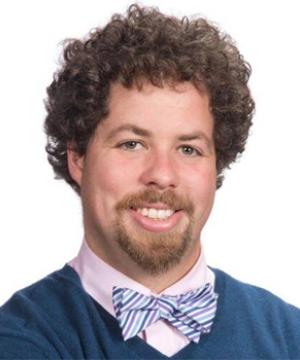Nicholson Price ’11 on the Careers in Law Teaching Program
Assistant Professor of Law, University of Michigan Law School
Columbia Law School’s Careers in Law Teaching Program (CILTP) has a long history of preparing students and alumni for jobs in academia. CILTP provides comprehensive guidance, including one-on-one mentorship, job-talk training, moot interviews, and preparation for the annual Association of American Law Schools Faculty Recruitment Conference in Washington. We talked with six alumni whose experiences with the program helped guide them toward faculty positions at law schools across the country.
Nicholson Price teaches patents, health law, and innovation in the life sciences. His primary scholarly interests lie at the intersection of law and the life sciences, including innovation policy and the regulation of emerging technologies. He is also a core partner at the University of Copenhagen Center for Advanced Studies in Biomedical Innovation Law. Before his appointment at Michigan, he was an assistant professor of law at the University of New Hampshire School of Law, an academic fellow at the Petrie-Flom Center for Health Law, Policy, Biotechnology and Bioethics at Harvard Law School, and a visiting scholar at the University of California, Hastings College of the Law. Prior to a clerkship on the U.S. Court of Appeals for the 9th Circuit, he earned a B.A. from Harvard College and a Ph.D. in biological sciences from Columbia University.
When did you decide to pursue a career in academia?
Early! I was at least seriously interested before I started law school, and that desire crystallized over my time in law school.
How did the CILTP help you?
The program provided advice about navigating the process, convened useful panels, provided individual information as I went through the process, and arranged a mock job talk, which was especially helpful.
Which Columbia professors’ teaching style was inspirational and had a significant impact on your career choice?
Michael Heller’s Property class stands out as a superb classroom experience. But Andrzej Rapaczynski’s Torts class, Suzanne Goldberg’s Civil Procedure class, and Ed Morrison’s Bankruptcy class were all memorable. My mentors on the faculty included Professors Heller, Katherine Franke, Philip Hamburger, and Hal Edgar (who is now retired), but I received a huge amount of support from many folks on the faculty.
What advice do you have for students or lawyers in practice who want to pursue academic careers?
Write! Write more! Read things! And then write more! Also, get to know your professors.
What is the best thing about being a professor?
There are many wonderful things! The huge amount of freedom to study issues I find interesting is wonderful. Engaged students are pretty delightful. It’s a good gig.
# # #
Published on March 21, 2019
